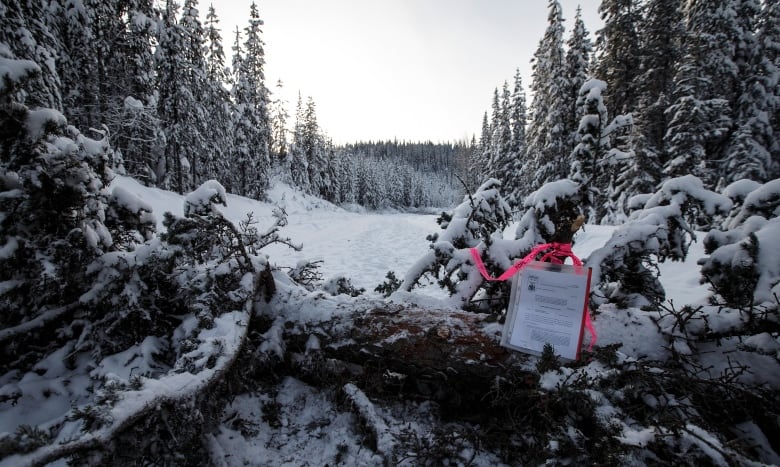Talks break down between province, Wet'suwet'en hereditary chiefs over Coastal GasLink pipeline standoff

Last-ditch talks between the British Columbia government and Wet’suwet’en hereditary chiefs aimed at finding a peaceful resolution to an ongoing standoff over a natural gas pipeline broke down Tuesday evening.
The discussions began last Thursday after the B.C. government appointed former NDP MP Nathan Cullen to act as a liaison in the talks with the Wet’suwet’en hereditary chiefs, who want to stop construction of the $6-billion, 670-kilometre Coastal GasLink pipeline.
The talks unfolded against the backdrop of looming RCMP enforcement of an injunction issued by a B.C. court at the end of December. The injunction prohibits ongoing physical obstructions along a snowy forest road in the heart of Wet’suwet’en territory that were put up to stop workers from working on the pipeline.
B.C. Minister of Indigenous Relations and Reconciliation Scott Fraser said in a statement that the province was still open to more dialogue, but that the talks failed.
“While we were not successful in finding a resolution to the current situation, we continue to remain open to dialogue with the Wet’suwet’en leadership on this issue,” Fraser said in a statement issued Tuesday evening.
“We hope that the paramount need for safety stays the top priority for all parties.”
The Wet’suwet’en hereditary chiefs also issued a statement saying the talks broke down, but appeared to place the blame on Coastal GasLink.
The statement said that Coastal GasLink, which was monitoring the talks through a mediator, concluded that there was not enough progress being made at the table.
“Coastal GasLink declined to see these discussions resulting in progress,” the chiefs’ statement said. “Therefore the enforcement of the injunction zone is imminent … Wet’suwet’en hereditary chiefs’ concerns are that safety be a top priority for all Wet’suwet’en.”
Coastal GasLink issued a statement that expressed disappointment that the talks failed to find a path “that would prevent the enforcement of the interlocutory injunction.”
The company said in the statement it plans to continue work in the disputed area in the coming days.
“It is our hope that the resumption of construction activities occurs in a lawful and peaceful manner that maintains the safety of all in the Morice River area.”
RCMP has maintained presence since last year’s raid
Coastal GasLink has signed agreements with all 20 elected First Nation councils along the 670-kilometre pipeline’s path, but the Wet’suwet’en hereditary clan chiefs, who are leaders under the traditional form of governance, say the project has no authority without their consent.
The pipeline is a key piece of the $40 billion LNG Canada terminal that is under development in Kitimat, B.C., which is the territory of the Haisla Nation, which supports the project.
The B.C. RCMP, which is contracted by the B.C. government to police the province, could not immediately be reached for comment.
The RCMP had said it would stand down from any enforcement activities for the seven days of talks between the B.C. government and the Wet’suwet’en chiefs.
The RCMP has maintained a presence on the Morice West Forest Service Road since January 2019, when the police force launched a raid against a Wet’suwet’en checkpoint along the road that was blocking Coastal GasLink workers.
The RCMP has since set up its own checkpoint on the forest road and is controlling access to the area, including putting a ban on helicopter flights.
The Wet’suwet’en have built at least three camps along the forest road.
The Wet’suwet’en hereditary chiefs maintain their actions will remain peaceful.





